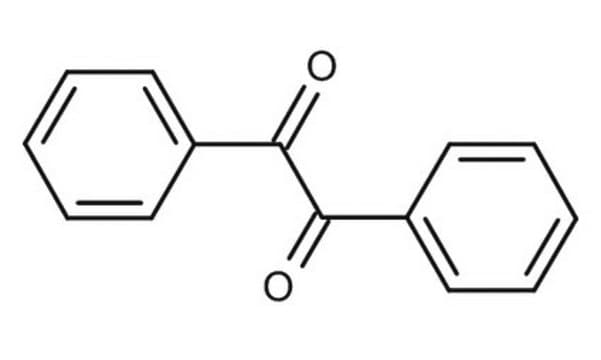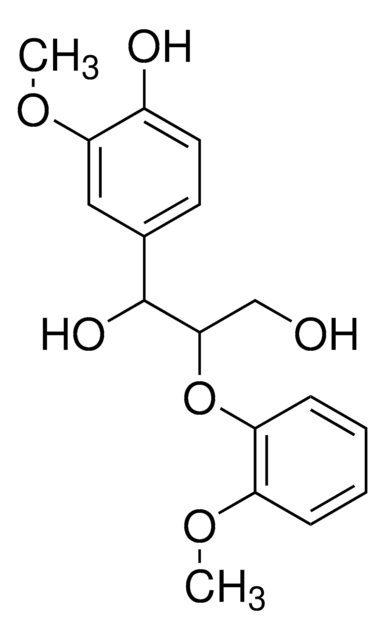B33706
Bibenzyl
ReagentPlus®, 99%
Synonym(s):
1,2-Diphenylethane, Dibenzyl
About This Item
Recommended Products
product line
ReagentPlus®
Assay
99%
form
crystals
autoignition temp.
896 °F
bp
284 °C (lit.)
mp
50-53 °C (lit.)
density
1.014 g/mL at 25 °C (lit.)
SMILES string
C(Cc1ccccc1)c2ccccc2
InChI
1S/C14H14/c1-3-7-13(8-4-1)11-12-14-9-5-2-6-10-14/h1-10H,11-12H2
InChI key
QWUWMCYKGHVNAV-UHFFFAOYSA-N
Looking for similar products? Visit Product Comparison Guide
Related Categories
Application
Legal Information
Storage Class Code
11 - Combustible Solids
WGK
WGK 2
Flash Point(F)
230.0 °F - closed cup
Flash Point(C)
110 °C - closed cup
Personal Protective Equipment
Certificates of Analysis (COA)
Search for Certificates of Analysis (COA) by entering the products Lot/Batch Number. Lot and Batch Numbers can be found on a product’s label following the words ‘Lot’ or ‘Batch’.
Already Own This Product?
Find documentation for the products that you have recently purchased in the Document Library.
Customers Also Viewed
Our team of scientists has experience in all areas of research including Life Science, Material Science, Chemical Synthesis, Chromatography, Analytical and many others.
Contact Technical Service








